
Note: This article contains serious spoilers! !
The core of comedy is tragedy. This is a sentence that makes our ears feel calluses. It is appropriate to put it in "Catch a Baby". The core of "Catch a Baby" is cruel, and even the comedy itself is a "cruel" thing.

"Catch Dolls" poster
"Catch a Baby" was once renamed "Successor Plan". "Successor Plan" explains the outline of the plot relatively intuitively, while "Catch a Baby" wins in its meaning.
Ma Chenggang (played by Shen Teng) is a super rich man in Xihong City. His eldest son was "raised to waste", so Ma Chenggang decided to give birth to his second son Ma Jiye (played by Xiao Xiao in childhood) who was born to him and his second wife Chunlan (played by Ma Li). Played by Bo Chen, the young man played by Shi Pengyuan) is trained into a qualified successor.
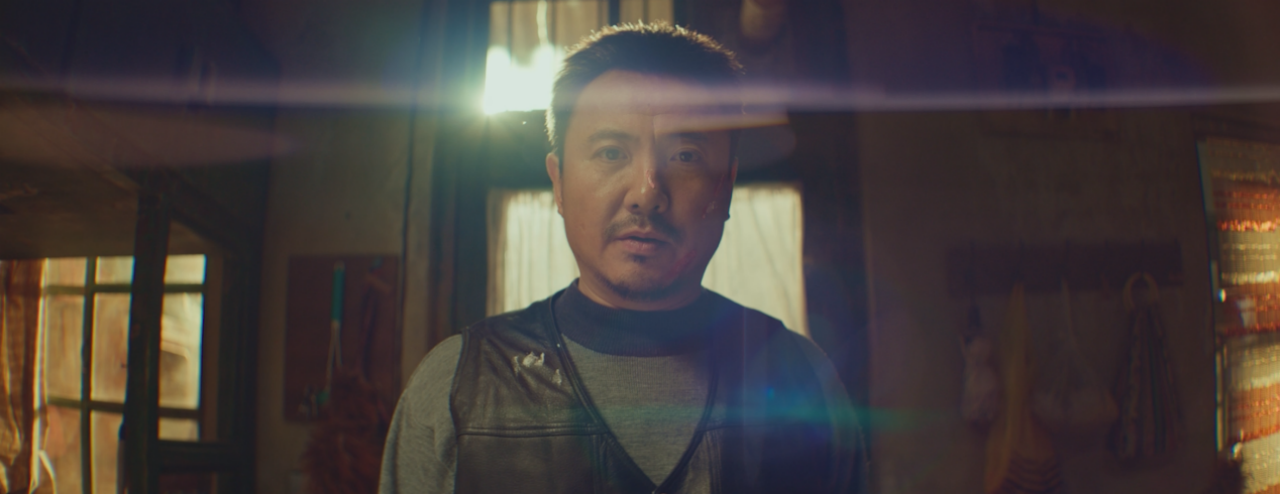
Ma Chenggang (played by Shen Teng)
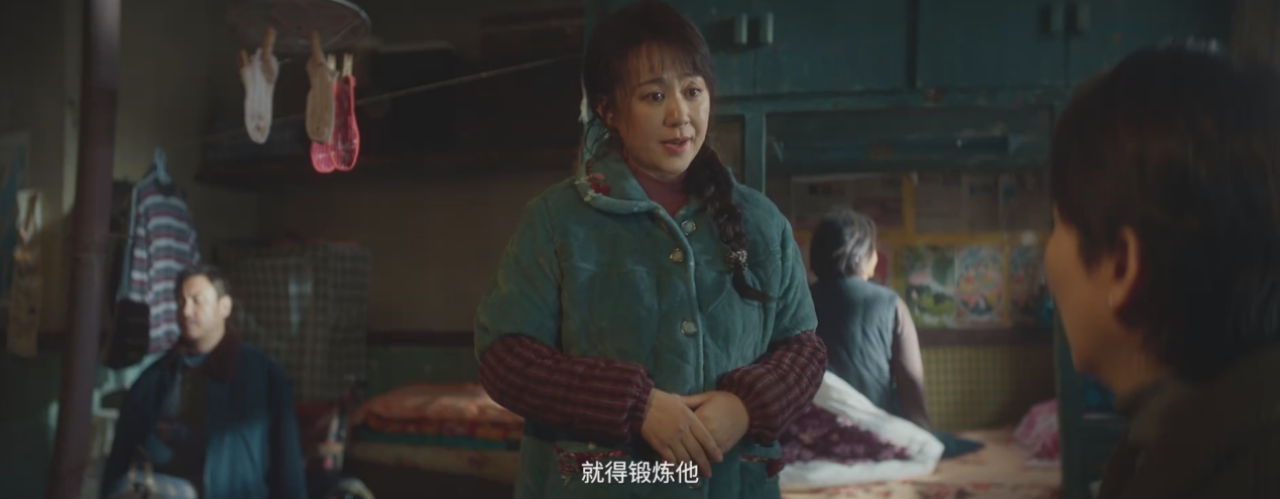
Chunlan (played by Ma Li)
In order to prevent Ma Jiye from indulging in luxury life and losing the motivation to fight, Ma Chenggang and his wife chose an unusual path. When Ma Jiye couldn't remember, they decided to hide their true wealth and move to live in the dilapidated compound where Ma Chenggang grew up as a child. They played the role of poverty in front of their son so that Ma Jiye would develop a hard-working, well-informed, and knowledgeable person. Qualities such as budgeting, fitness, and perseverance.
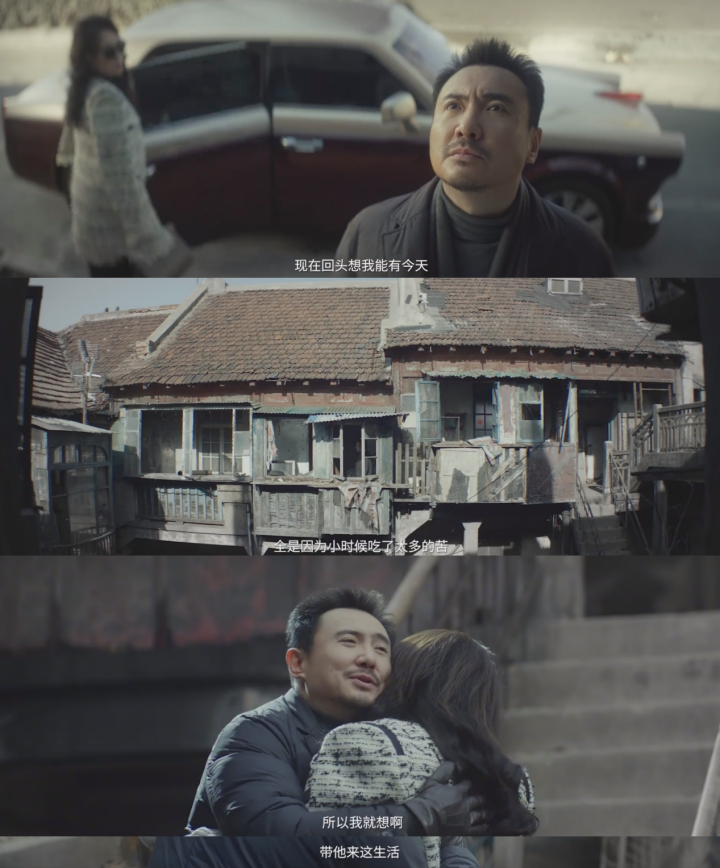
Ma Chenggang’s plan to transform his son
Ma Chenggang and his wife have been pretending to be poor for more than ten years. They strictly controlled their son, and once Ma Jiye deviated slightly from the preset track, they used "miserable selling" and moral kidnapping to inspire Ma Jiye's inner resilience and determination to pursue excellence.
What's even more exaggerated is that in order to ensure that the succession plan is foolproof, Ma Chenggang formed a professional team to conduct all-round monitoring and guidance of Ma Jiye's life and study. Ma Jiye's every choice and every progress is under the close observation of his parents and team to ensure that he can grow into an ideal successor according to the preset path. Ma Jiye is like "Truman's" living in Xihong City. In "World", everything around us looks natural, but is actually designed.
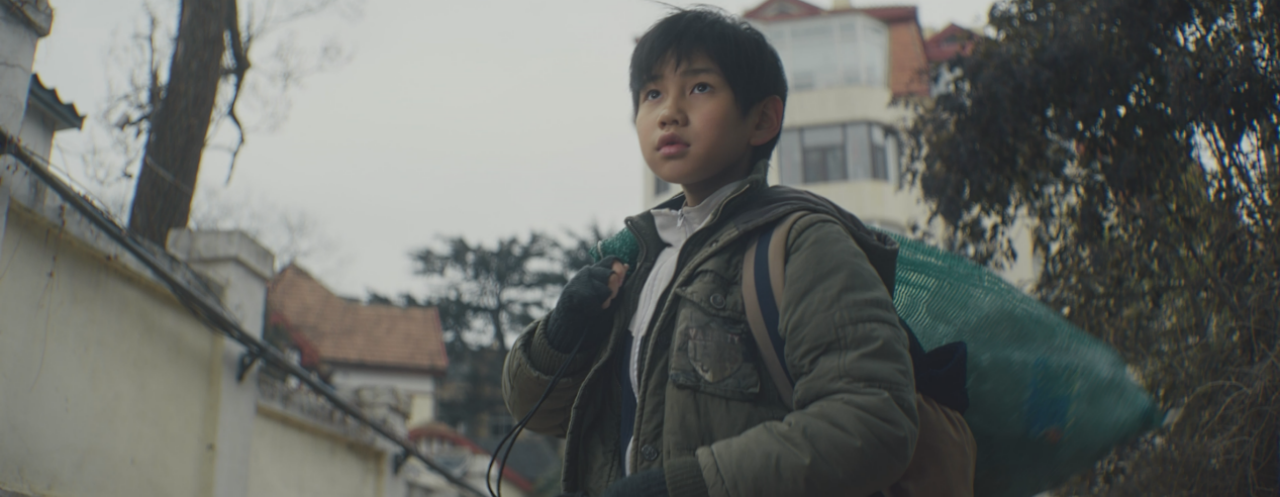
Childhood Ma Jiye (played by Xiao Bochen)
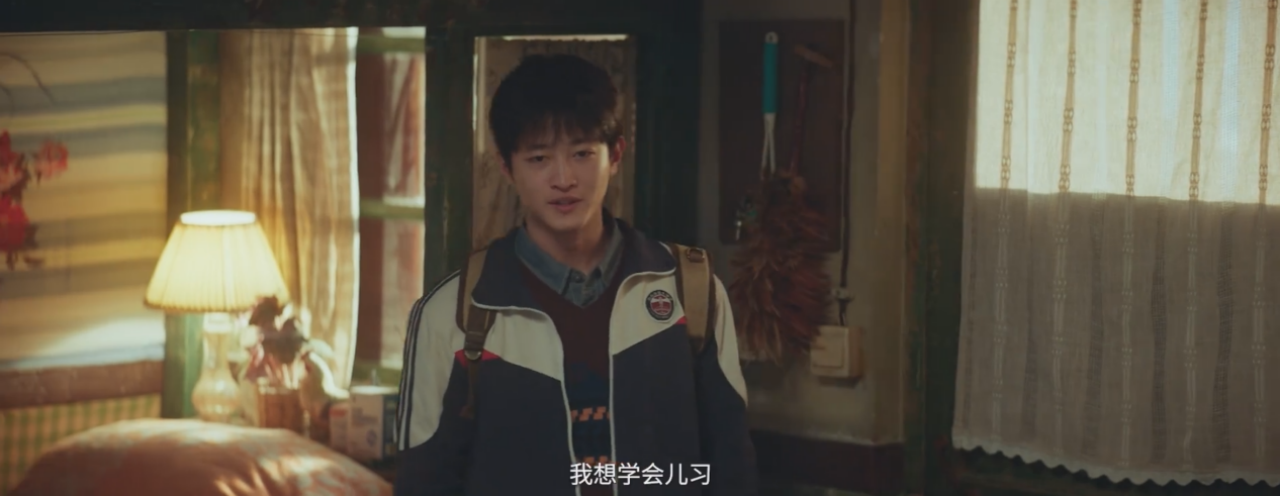
Young Ma Jiye (played by Shi Pengyuan)
The main source of laughter in the movie is the contrast between Ma Chenggang and his wife "pretending to be poor", and the absurd "lies" when "pretending to be poor" almost exposes the truth.
The contrast between "pretending to be poor", for example, Ma Chenggang and his wife accidentally showed signs of wealth in their daily lives. When a guest visited their "poor household", Chunlan invited the guest to smoke a cigar. When the guest modestly said that she ran a small business and had opened more than 20 chain stores in the province, Chunlan turned to Ma Chenggang and said, "Oh... that is indeed a small business." Buying and selling" and so on. This contrast creates a sense of surprise and triggers laughter.
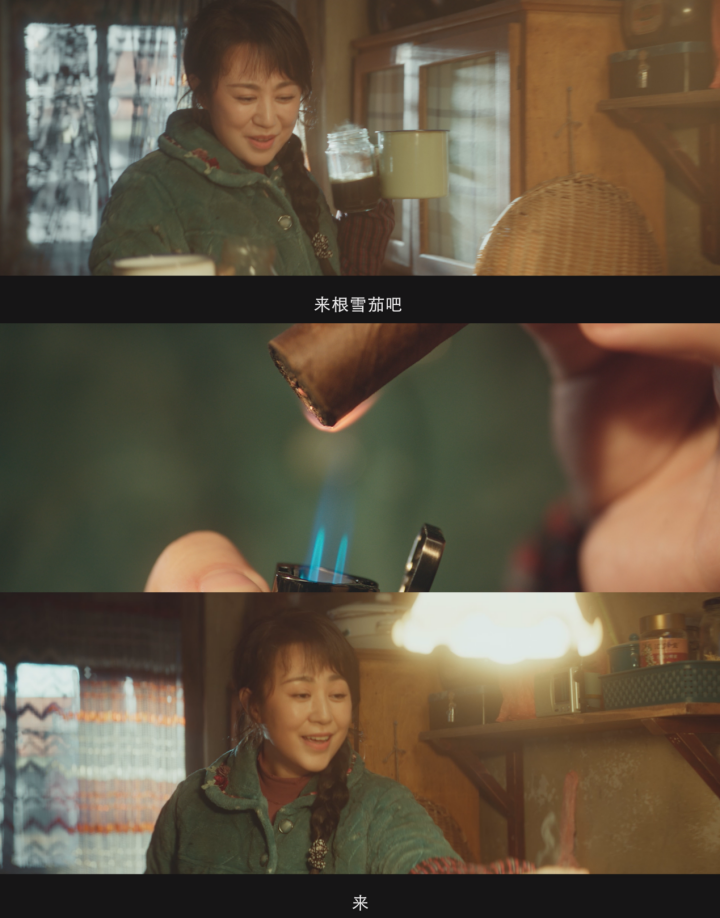
"Pretending to be poor" can hardly change the nature of the rich
Every time they "pretend to be poor" and their secrets are almost exposed, the Ma Chenggang couple are placed in an embarrassing situation. Their reactions and efforts to avoid being discovered are full of uncertainty. They often make exaggerated actions or rhetoric when "telling lies". This kind of The solution is full of humor and also makes people laugh.
For example, in order to create a book-loving atmosphere at home, Ma Chenggang and his wife and Ma Jiye's "fake grandma" (played by Sa Rina) held books in their hands to read. In fact, they were browsing their mobile phones. Chunlan accidentally dropped her mobile phone, so she had to cover it up in a panic. past.
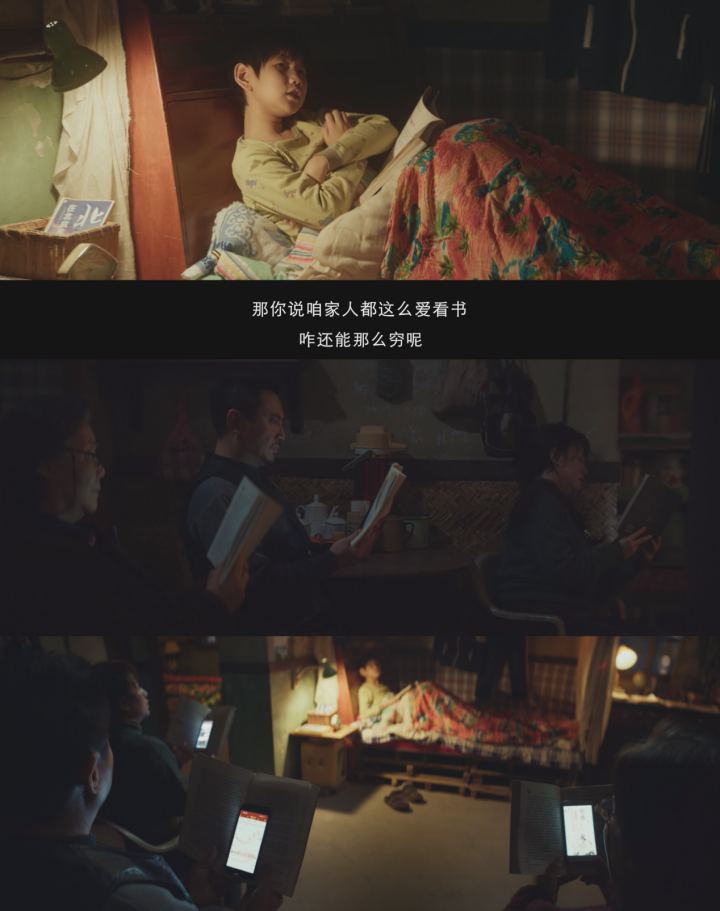
The family doesn’t like reading, so they insist on creating a scholarly family atmosphere.
As Ma Jiye grew up, it became more difficult for Ma Chenggang and his wife to deceive him. The frequency and degree of "reveals" and "lies" increased accordingly, and each incident was more complicated and "interesting" than the previous one. For example, after the "fake grandma" was seriously exposed, Ma Chenggang could only arrange for her to be offline and arrange a funeral. The effect of this scene was immediately overwhelming, and the theater burst into laughter.
However, the viewing effect of comedy movies always varies from person to person. As far as the author is concerned, I didn’t laugh much most of the time, mainly because the movie’s laughter setting is actually very cruel. On the surface, it is the "revelation" of Ma Chenggang and his wife. and "complete lies," which are actually deceiving a child over and over again.
The humor of comedy is based on the exaggerated treatment of some embarrassing or unexpected situations, but if this setting touches the moral or ethical bottom line (such as the strong deceiving and harming the weak), it may cause discomfort. The jokes in "Catch Me" are based on dishonesty and manipulation of children, which exceeds the boundaries of humor that some people may accept.
Of course, many viewers will find it harmless and don’t take it too seriously. The author is only objectively expressing the possible controversies in the movie's laughter setting, but no matter what, we do not agree with the above-the-line criticism method. For example, the "pretending to be poor" in the movie involves issues of wealth and poverty, etc., and the movie handles it as carefully as possible. In the current context of increasingly harsh public opinion, when it comes to the so-called "three views" issues in movies, it is better to be tolerant rather than intolerant, and to raise objections but also accept differences.
It's hard to laugh out loud, which is also related to the "sketchy" nature of the laughs in the first half of the movie. The clips that are almost "revealed" look like they are pieced together from a series of unrelated jokes, resulting in a loose narrative structure in the first half; the narrative length of the jokes is different, resulting in an unstable rhythm and affecting the smoothness of the movie. ; The form of the jokes is single, the repetitive jokes and similar situations may make people feel tired... I can’t imagine that if this movie was not starring Shen Teng and Ma Lilai, a lot of baggage would not be heard at all.
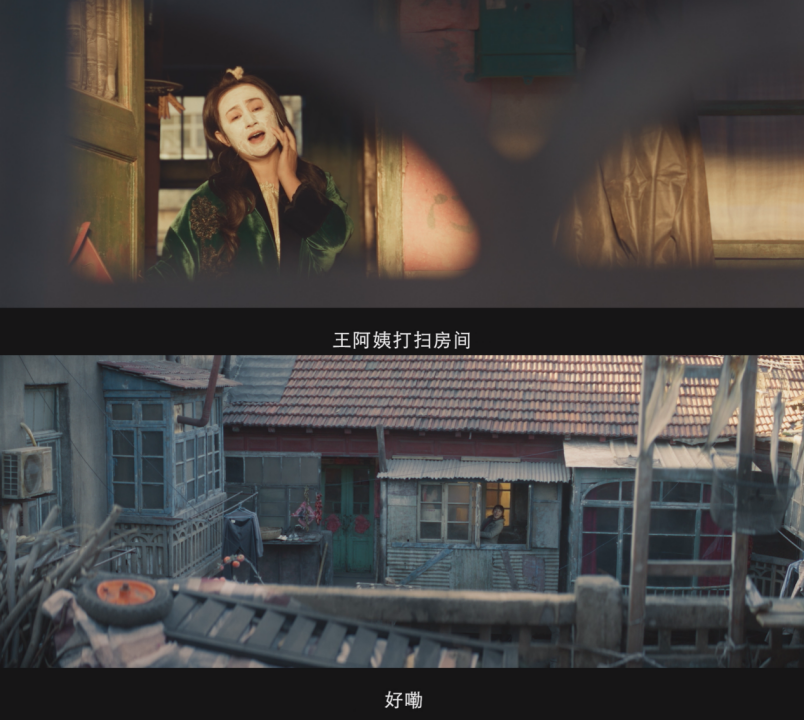
There are a lot of jokes in the movie, most of which revolve around the contrast of "pretending to be poor"
It wasn't until Ma Jiye was young that the plot entered the "turn" stage, and the rhythm was much more efficient. Even the moment when Ma Jiye revealed everything happened quite quickly.
Ma Jiye found that he had lived in a "Truman Show" since he was a child: everything was fake, everything was calculated, and his emotions from childhood to adulthood were also manipulated; his diary was taken out and analyzed, His micro-expressions were magnified and interpreted, and even his stools were tested and monitored by specialized personnel...
The drama at this stage lies entirely with Ma Jiye. Young actor Shi Pengyuan still carried this role well. Only if his pain can accurately hit every audience, the audience will not be blinded by their favorable impressions of Shen Teng and Ma Li and think that they are their successors. The plan was born out of love, and one could realize the full cruelty and horror behind the plan.
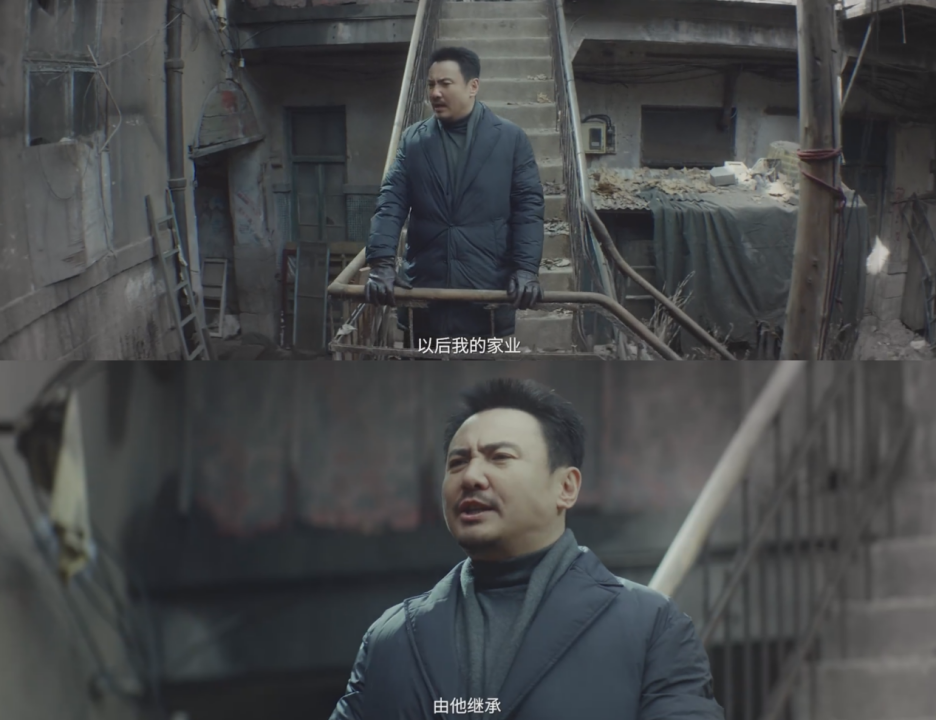
Ma Chenggang’s whole purpose is to train successors
The "successor plan" is a comprehensive violation of personal freedom and privacy, depriving Ma Jiye of his ability to think independently and make decisions on his own as an individual, and fundamentally denying his dignity as a human being.
The "successor plan" is emotional manipulation and moral kidnapping. It takes advantage of Ma Jiye's sympathy, sense of responsibility and guilt to make him accept specific values and lifestyles without his knowledge, and loses the opportunity to make independent choices and understand the real world. Make all his pleasure or pain seem cheap and ridiculous.
"Succession planning" is a violation of the rights of the weak by the strong. In the parent-child relationship, there is a natural power asymmetry between parents and children. Ma Chenggang and his wife took advantage of this asymmetry to carry out long-term deception. Ma Jiye was passive, had no choice, and was at the mercy of others.
Ma Chenggang's parents obviously underestimated the harm their more than ten years of deception would do to their children. Ma Jiye was indeed molded into their expected successor, but none of this was based on Ma Jiye's own interests and potential development, and it was difficult for Ma Jiye to form a healthy and stable self-identity.
More importantly, trust is the most basic element in the parent-child relationship. In order to achieve their goals, Ma Chenggang and his wife did not hesitate to deceive and play with Ma Jiye. This was the deepest betrayal of the child. It not only eroded Ma Jiye's inner innocence, but also seriously damaged the original and instinctive bond of trust between parent and child. Are all the benevolence, righteousness and morality I have accepted for more than ten years “fake”? Who else can be trusted? Who should you trust?
Those viewers who downplay the harmful effects of deception with arguments such as "Ma Chenggang is at least willing to spend time and money to educate his children" and "the thing more terrifying than deception is real poverty" may be that the hardships in life have made them attach great importance to the importance of money and fantasize about it. Rich dad comes to save them. We should understand their difficulties, but we should also remind them: Without the most basic "truth", where can there be "goodness" and "beauty"? The amount of wealth may be related to happiness, but free will, independent choice, true love and happiness are more closely related. Without them, a "puppet" will not be happy.
It can be expected that many viewers have some ambivalence after watching "Catch a Baby". On the one hand, everyone likes Shen Teng and Ma Li, and the two actors are so likable that the audience is willing to believe that Ma Chenggang and his wife's succession plan is out of love; but at the same time, Ma Jiye's pain when he discovered the truth is quite real. Let the audience feel the cruelty of the succession plan, and the "evil" that Ma Chenggang and his wife are unaware of.
It is precisely this balance of contradictory emotions that reflects the brilliance of directors Yan Fei and Peng Damo, which is an essential factor in ensuring the commercial success of the film. Shen Teng is the core of the movie. The movie can have elements of "The Truman Show", but the protagonist cannot be "Truman", but can only be Shen Ma; they are too likable, and they cannot let their characters become extreme. The big villains can only be controlling parents who make people love and hate each other, such as the sentence "Do you think you are the only one being manipulated? Aren't you also controlling our lives?" But if the movie loses reflection and From the perspective of criticism, then "Catch a Baby" is a movie that fails completely in terms of its conception, and it will be a problem if it passes censorship.
The delicate balance of contradictions makes "Catch a Baby" just right in terms of commerciality and conceptual expression. It not only makes most viewers laugh to the end, makes some viewers pick up Shen Ma's CP, but also makes people think about it after making them laugh. Extremely scary, it carries certain social issues, has discussion points, and has the potential of social currency.
The delicate balance is even more vividly reflected in the movie’s Easter egg, which is the finishing touch of the movie. A year later, Ma Jiye entered his favorite sports university with a high score of 705 points. Ma Chenggang and his wife were watching their son's game in front of the TV. However, Ma Jiye didn't even make it to the third echelon and was "complained" by Ma Chenggang. The atmosphere was harmonious, and it was easy for the audience to think that: Ma Chenggang and his wife had "reconciled" with their son, and Ma Jiye was living the life he wanted. Fans of Shen and Ma CP outside the screen were even more joyful, because Ma Chenggang and his wife were so "sugar" ——Ma Chenggang raised a glass of red wine soaked in wolfberry and toasted to Chunlan, implying that the eldest son and second son were "finished", so let's have a third child. The movie ends with the couple having fun...
This easter egg looks fun, but in fact it sharply and cruelly references the title of "Catch a Baby". What is "catching a baby"? It turns out that it’s not just a doll, it’s like a claw machine. If this one doesn’t work, grab that one. If this child is “finished”, then raise the next one... Everything is realized by treating the child as a parent. They are tools for their own goals, rather than individuals with independent thoughts and emotions. Once their children "fail", they "abandon" them, without true love, respect and understanding at all.
In essence, "Catch a Baby" is a very cruel movie, and behind the laughter is cruelty. I hope more parents can understand the intention behind the laughter, and if they do, they can change it or encourage others. From a commercial perspective, although "Catch a Baby" will inevitably be criticized as a sketch-style film, Yan Fei and Peng Damo may be the directors who are best at using Shen Teng and Ma Li. Their commercial "balancing skills" "It is worth learning from more domestic comedy directors.


